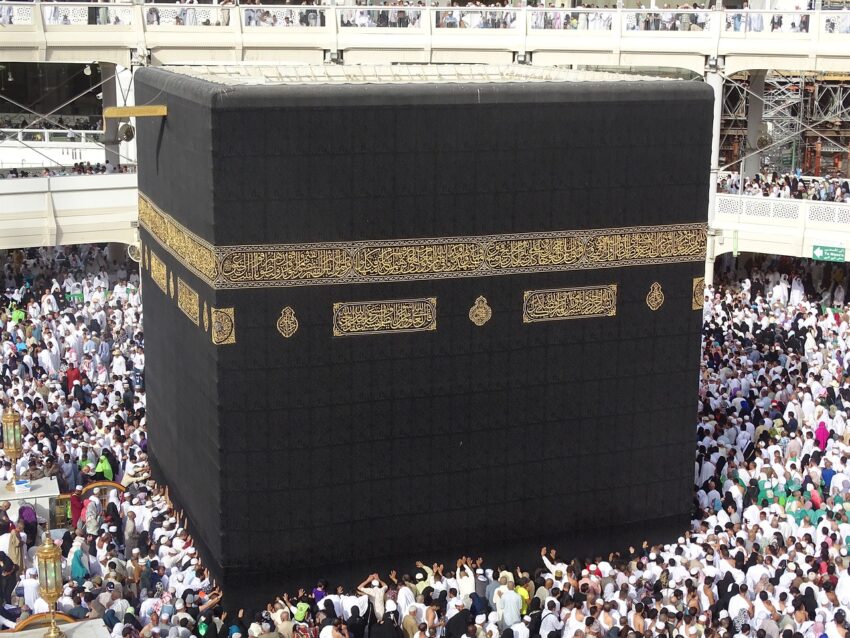What is Shab E Mehraj in Islam and Its Significance
Shab-e-Miraj in Islam
Shab-e-Miraj, also known as the “Night of Ascension,” is a significant and spiritually profound event in Islam that marks the miraculous journey of Prophet Muhammad (peace be upon him) to the heavens. Celebrated on the 27th night of the Islamic month of Rajab, it is a night filled with deep reverence and special prayers among Muslims worldwide.
Its Significance, Events, and how it is observed.
Historical Background
The term “Shab-e-Miraj” is derived from two Arabic words: Shab, meaning “night,” and Miraj, meaning “ascension.” This event, as described in the Quran and Hadith, was a miraculous journey undertaken by Prophet Muhammad (PBUH) in two stages:
Isra (The Night Journey): The Prophet (PBUH) was awakened by Angel Jibreel (Gabriel) and taken on a journey from the sacred mosque in Makkah (Masjid al-Haram) to the farthest mosque in Jerusalem (Masjid al-Aqsa). This part of the journey, known as Isra, was completed on the celestial steed named Buraq.
Miraj (The Ascension): From Masjid al-Aqsa, the Prophet (PBUH) ascended through the seven heavens, guided by Angel Jibreel, to meet Allah Almighty. During this divine meeting, the Prophet (PBUH) was granted the gift of Salah (prayer), which was initially ordained as 50 daily prayers and later reduced to five, with the reward of 50 for those performed sincerely.

Significance of Shab-e-Miraj
Spiritual Elevation: Shab-e-Miraj symbolizes the closeness of the Prophet Muhammad (PBUH) to Allah and emphasizes the importance of spiritual growth and connection with the Creator.
Establishment of Salah (Prayer): One of the most significant outcomes of this event was the gift of five daily prayers. Salah is the central pillar of Islam, serving as a direct link between a believer and Allah.
Reaffirmation of Prophethood: The miraculous nature of this journey reaffirmed the truthfulness of the Prophet Muhammad (PBUH) and his status as Allah’s final Messenger. Despite skepticism from some contemporaries, believers accepted it as a testament to his divine mission.
A Reminder of Accountability: Shab-e-Miraj underscores the temporary nature of worldly life and the ultimate journey to the hereafter. It reminds Muslims of their responsibilities, the Day of Judgment, and the importance of leading a righteous life.
Events of Shab-e-Miraj
During the journey, the Prophet (PBUH) encountered numerous divine experiences, including:
Meeting Previous Prophets: The Prophet (PBUH) met Prophets Adam, Ibrahim (Abraham), Musa (Moses), Isa (Jesus), and others at different levels of the heavens.
Witnessing Jannah (Paradise) and Jahannam (Hell): He was shown the rewards for the righteous in Jannah and the consequences for sinners in Jahannam.
Dialogue with Allah: The Prophet (PBUH) had a direct conversation with Allah, an unparalleled honor granted to no other human.
Observance of Shab-e-Miraj
Muslims worldwide commemorate this night with devotion and gratitude. While there are no obligatory rituals prescribed in the Quran or Hadith specifically for Shab-e-Miraj, many Muslims observe it through:
Prayers (Salah): Special emphasis is placed on offering voluntary night prayers (Tahajjud) and seeking forgiveness.
Recitation of the Quran: Muslims recite verses of the Quran to reflect on its guidance and seek closeness to Allah.
Supplications (Duas): Devotees spend the night making heartfelt supplications for personal needs and the well-being of the Ummah.
Charity: Acts of kindness and charity are encouraged as a means of earning Allah’s blessings.
Lectures and Gatherings: Religious gatherings are held in mosques and homes, where scholars recount the story of Miraj and its spiritual significance.

Lessons from Shab-e-Miraj
Shab-e-Miraj offers numerous lessons for Muslims, including:
The importance of establishing a strong connection with Allah through prayer.
The value of patience and unwavering faith, even in the face of challenges or doubts.
A reminder of the vastness of Allah’s mercy and the beauty of the afterlife.
Conclusion
Shab-e-Miraj is not just a commemoration of a miraculous journey but a night of spiritual reflection, devotion, and renewal of faith. It reminds Muslims of the boundless mercy of Allah, the significance of prayer, and the ultimate goal of seeking His pleasure. By dedicating this night to worship and self-improvement, Muslims aim to strengthen their relationship with Allah and strive for success in this life and the hereafter.

